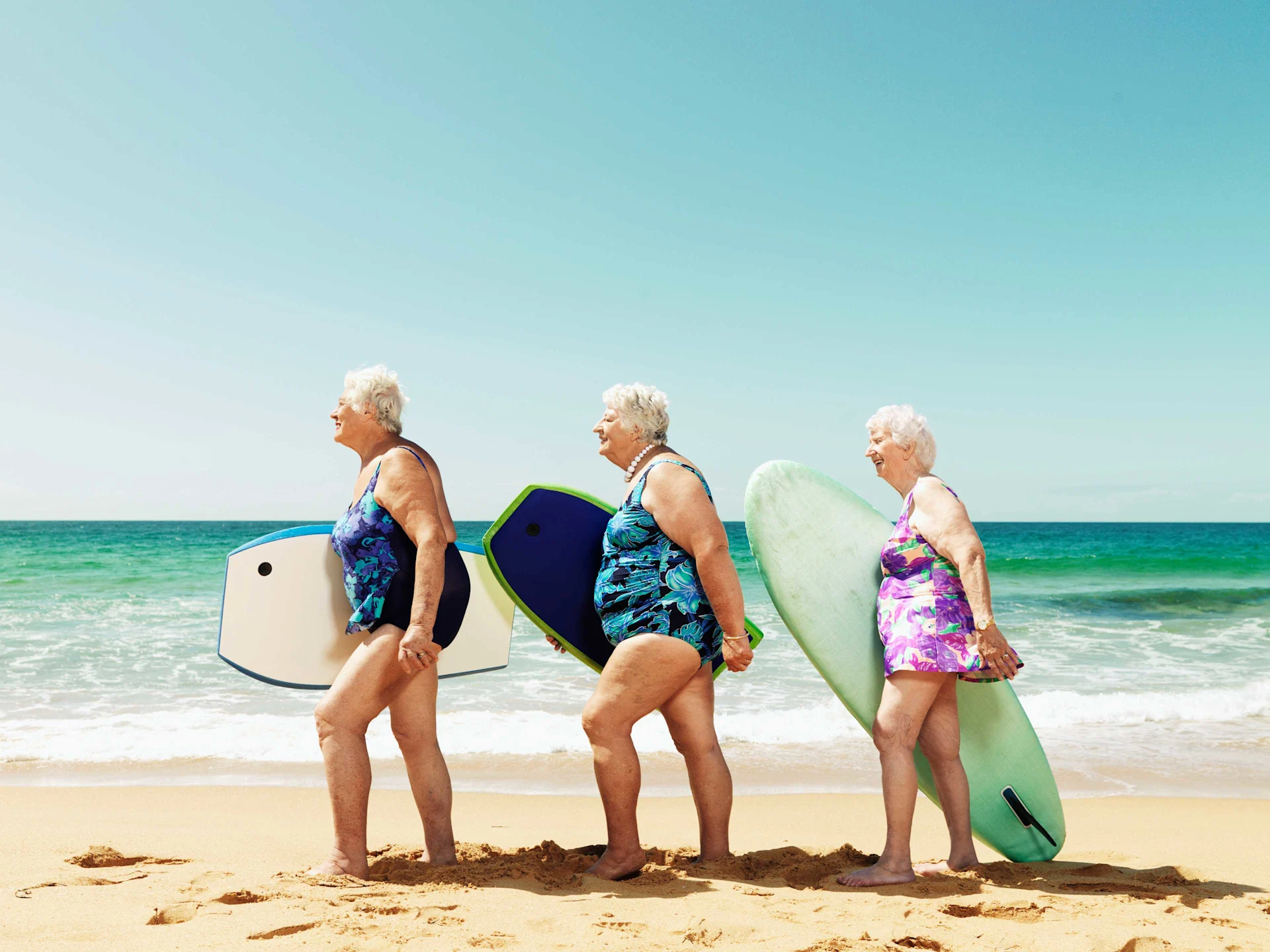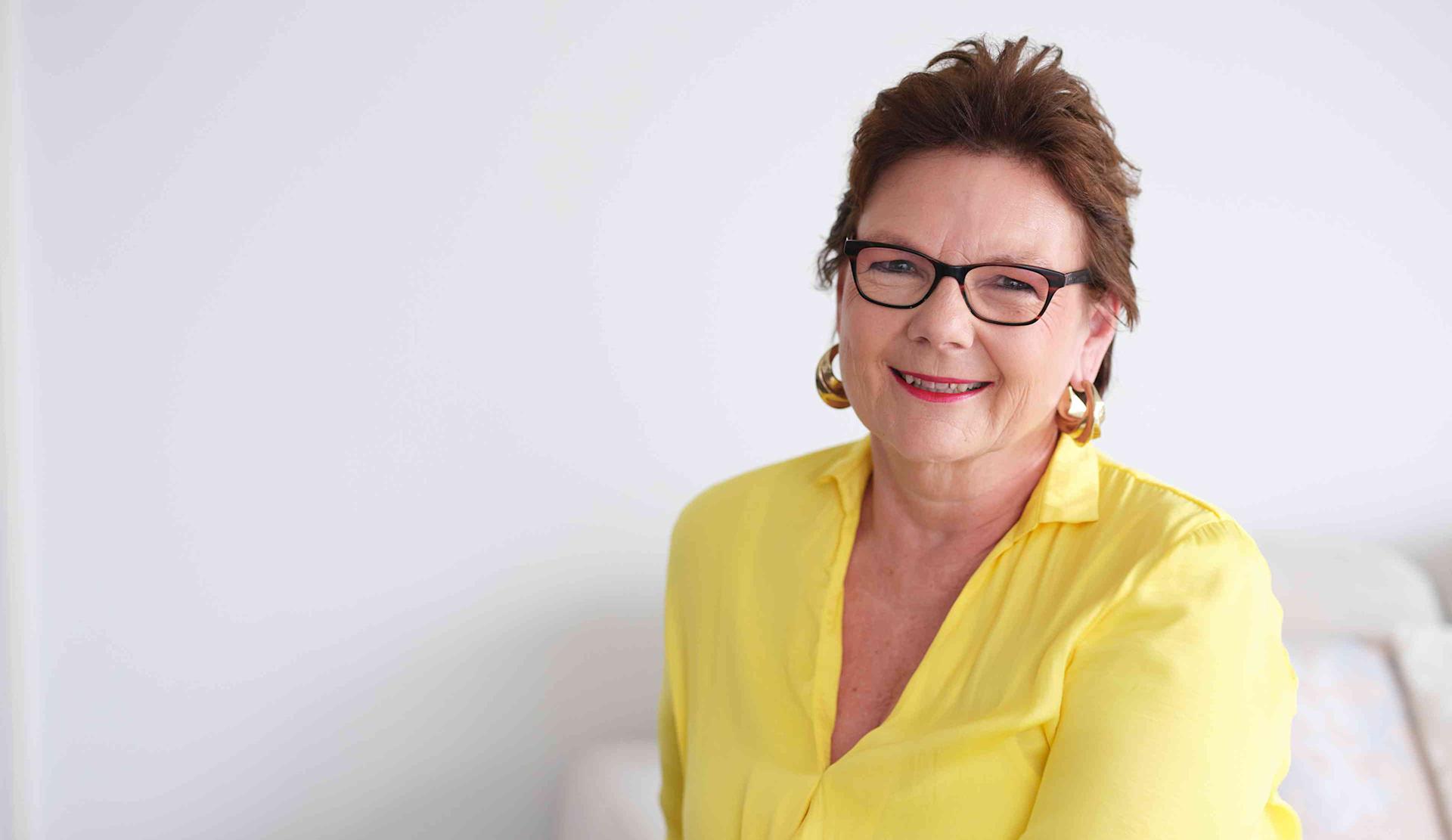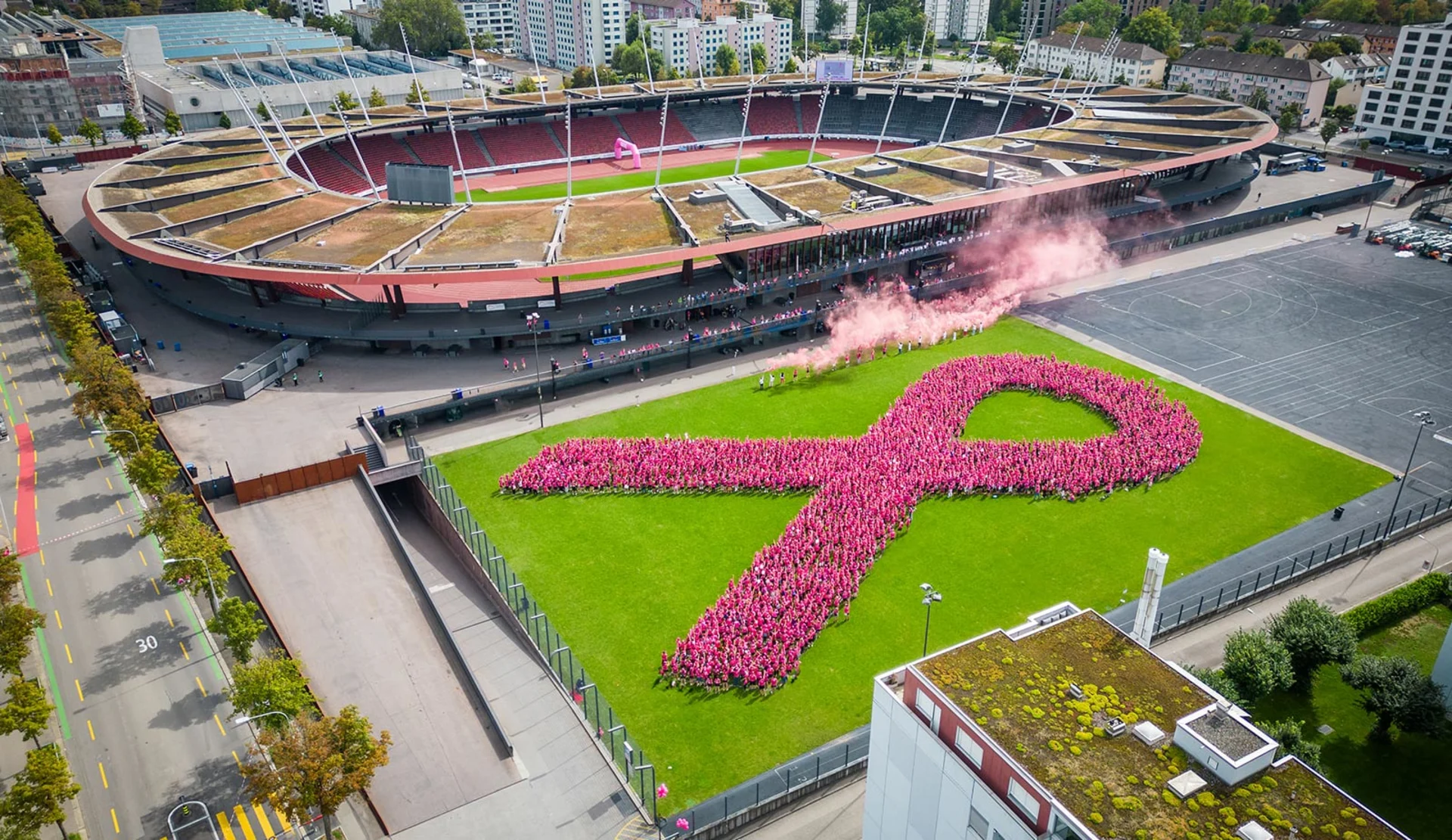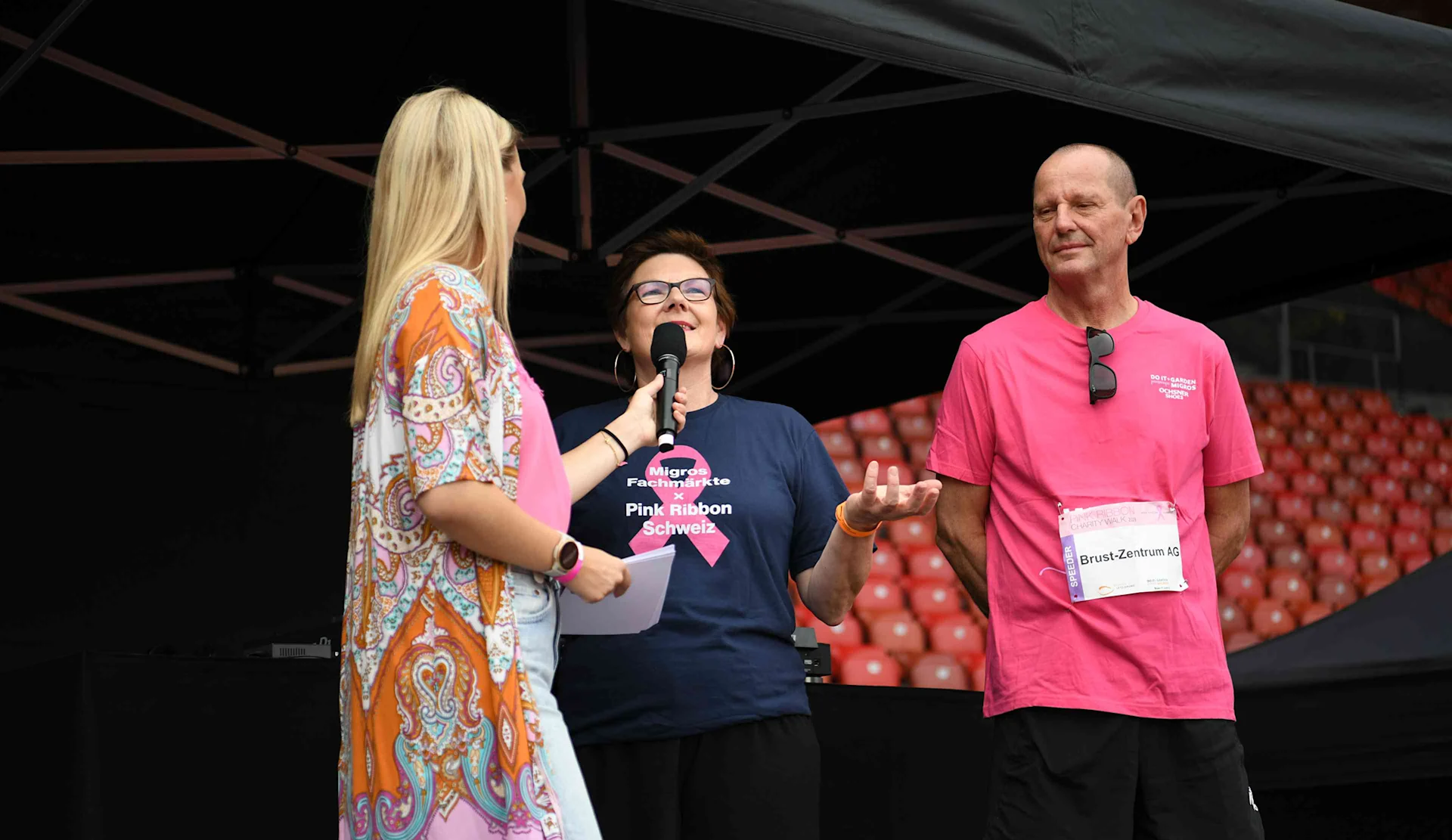
GDI
Is it possible to stay young forever?
Longevity was the theme of the Food Innovation Conference. What is said to slow down ageing?
navigation

Breast cancer
Bea Kutter is responsible for the partnership with Pink Ribbon Switzerland at Do it + Garden. Having been previously diagnosed with the disease, she is doubly passionate about helping those affected by breast cancer.
On 3 September, 5,000 people dressed in pink lined up in the shape of a giant ribbon at Zurich’s Letzigrund sports stadium. In the midst of it all, Bea Kutter. “It was a very emotional moment,” says the marketing specialist at Do it + Garden. During a minute’s silence, the participants formed a heart with their hands and remembered a person who had breast cancer. “I saw tears in many people’s eyes.”
At Do it + Garden, the 55-year-old is project manager of the partnership with Pink Ribbon Switzerland. Migros specialist markets support the organisation, which aims to raise awareness in society about breast cancer. For Bea Kutter, however, the task is much more than just a job. Because in spring of last year, she herself received the devastating diagnosis – just one week after starting her new job. During a routine examination, the gynaecologist detected several tumours in her right breast. This was followed by a full year of relentless medical examinations and treatments: chemotherapy, surgery, radiation and immunotherapy. But Kutter was lucky: she is now healthy again and has even been able to retain her breast.
“It wasn’t an easy year, but the experience wasn’t all bad either,” the Lucerne native reflects. The worst thing for her was the initial uncertainty. “I didn’t know what was coming and whether I would survive the disease.” Yet almost more than for herself, she worried about her husband and their two grown-up daughters.
In the end, her actual experience of the treatment was very positive. The oncologist explained everything very patiently and sensitively, but without glossing over the situation. Although the waiting room of the oncology ward was always full, the team at the Cantonal Hospital Lucerne never appeared stressed. The staff always took time for personal conversations and looked after Kutter and those accompanying her. “I felt extremely comfortable.”

After the six chemotherapy infusions, she always felt well to begin with. The side effects only came on the fourth day. Then she felt utterly dreadful for three days at a time. Apart from this, she didn't really feel ill throughout the whole year and was able to work with a slightly reduced workload almost all the time – often from home.
I was very open about my illness from the outset.
Kutter says her team was very understanding. Her family and her large circle of friends were also helpful. The breast cancer patient received flowers, gifts, calls, messages and offers of help from everywhere, even from people she didn’t know well. “I was very open about my illness from the outset,” she says. “I suppose that made it easier for the others to talk to me about it.”
Bea Kutter now wants to pass on the great solidarity she experienced to other affected people and their relatives, which is why she is so passionate about Pink Ribbon activities. On 3 September, she was in charge of the Do it + Garden stand at Letzigrund, where participants created a collaborative painting under the guidance of artist Ron Odermatt. This will be auctioned at the Pink Ribbon Christmas Gala. The money raised goes to solidarity projects, prevention campaigns and research.

Furthermore, the project manager motivated 500 employees from the Migros Group and customers to participate in the Charity Walk and was responsible for the 1,400 heather plants donated by Do it + Garden. The pink pots commemorated the 1,400 women on average who die of breast cancer in Switzerland every year. Over the same period, around 6,500 people receive a diagnosis – including a small number of men.
On 3 September, Bea Kutter also stood on the big stage and talked about her experiences. She found the moment when everyone sang and danced to the ballad “Zämme simmer stercher” very touching. “I was very lucky that the treatment worked so well for me and that I was cured,” says Bea Kutter. “Now I am keen to give encouragement to others as well.”
Want to learn more about our commitment to health? Dive into our stories and discover inspiring contributions.